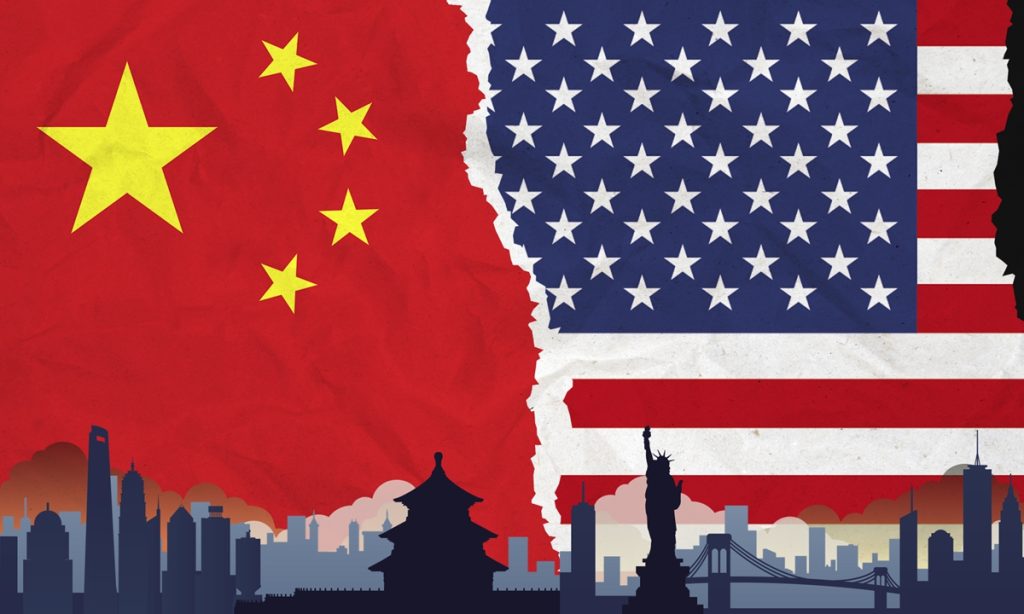WSJ’s hype on espionage threat from China an insult to readers’ intelligence

Some American media outlets are indistinctively portraying Chinese nationals as spies. Yet instead of proving the so-called espionage threat from China, they have only exposed how dumbed down and crude US propaganda tactics are, which is even insulting the intelligence of American readers.
An article in the Wall Street Journal (WSJ) published on Monday local time alleged that "Chinese nationals, sometimes posing as tourists, have accessed military bases and other sensitive sites in the US as many as 100 times in recent years," sparking espionage concerns.
Liu Pengyu, spokesperson of the Chinese Embassy to the US, refuted these claims as malicious fabrications. In fact, anyone with critical thinking skills can easily tell that US' smear is riddled with loopholes in this case.
For instance, who are the "incursionists"? The WSJ claims these are "people who say they are following Google Maps to direct them to the nearest McDonalds or Burger King, which happens to be on a nearby military base," or Chinese nationals who said "they have a reservation at an on-base hotel." The article said there have been 100 incidents involving Chinese nationals trying to access American military and other installations. Yet at the same time it finds it hard to skirt around the truth - "no cases appear to have resulted in espionage charges." In other words, it means the WSJ knows this is another baseless defamation.
Given the lengthy description by the WSJ, US military bases are as easily accessible as public libraries. Anyone find it plausible?
US military bases have the most stringent level on both physical and cyber security measures, and are not places for ordinary people to make incursions in such simplistic ways. Hyping up that Chinese people poses espionage threat via such low-level approaches is an insult to American readers' intelligence, Song Zhongping, a Chinese military expert and TV commentator, told the Global Times.
Since this year, the US has frequently sensationalized unfounded smears such as the "Chinese spy balloon" saga and that Cuba may host a secret Chinese spy base focusing on the US. As expected, all have been debunked as unfounded slanders in the end. In recent years, many international students, businesspersons, and scientists have been labeled as "spies" and imprisoned by the US security agencies simply because they are of Chinese descent or have had dealings with China, with most cases lacking substantial evidence.
Borrowing a recent buzzword - AIGC (Artificial intelligence generated content), we can say stories in US media obsessed with China's "spy" operations are typically CIAGC, CIA-generated content, which aimed at conducting cognitive infiltration and manipulating public perception, Lü Xiang, a research fellow at the Chinese Academy of Social Sciences, told the Global Times.
The WSJ, among other US media, is blatantly seeking to create an atmosphere where China is perceived as a security threat to the US, aligning with overall US policies toward China, in an attempt to legitimize US containment tactics, Lü said.
By shrieking so-called espionage concerns, US media may be laying the ground for more future de-coupling or de-risking in high-tech and defense sectors.
Ironically, one key goal of US Commerce Secretary Gina Raimondo's recent China visit was promoting commercial ties where they align with US interests, including efforts to foster tourism. The WSJ quoted Raimondo in its reporting on August 27 as saying that if tourism revives to 2019 levels, travel by Chinese visitors would generate about $30 billion in spending, supporting some 50,000 American jobs.
Yet if walking into a Burger King or McDonalds can be misconstrued as evidence of espionage, guess how many Chinese people will be willing to travel to the US?
Huawei's comeback in the 5G industry demonstrates China's ability to overcome the US technological blockade. Additionally, a growing number of ethnic Chinese scientists switched their affiliation from American to Chinese institutions, amid chilling anti-Chinese sentiment in the US.
Ultimately, time will prove that the US' malicious and low-level propaganda war will only backfire.